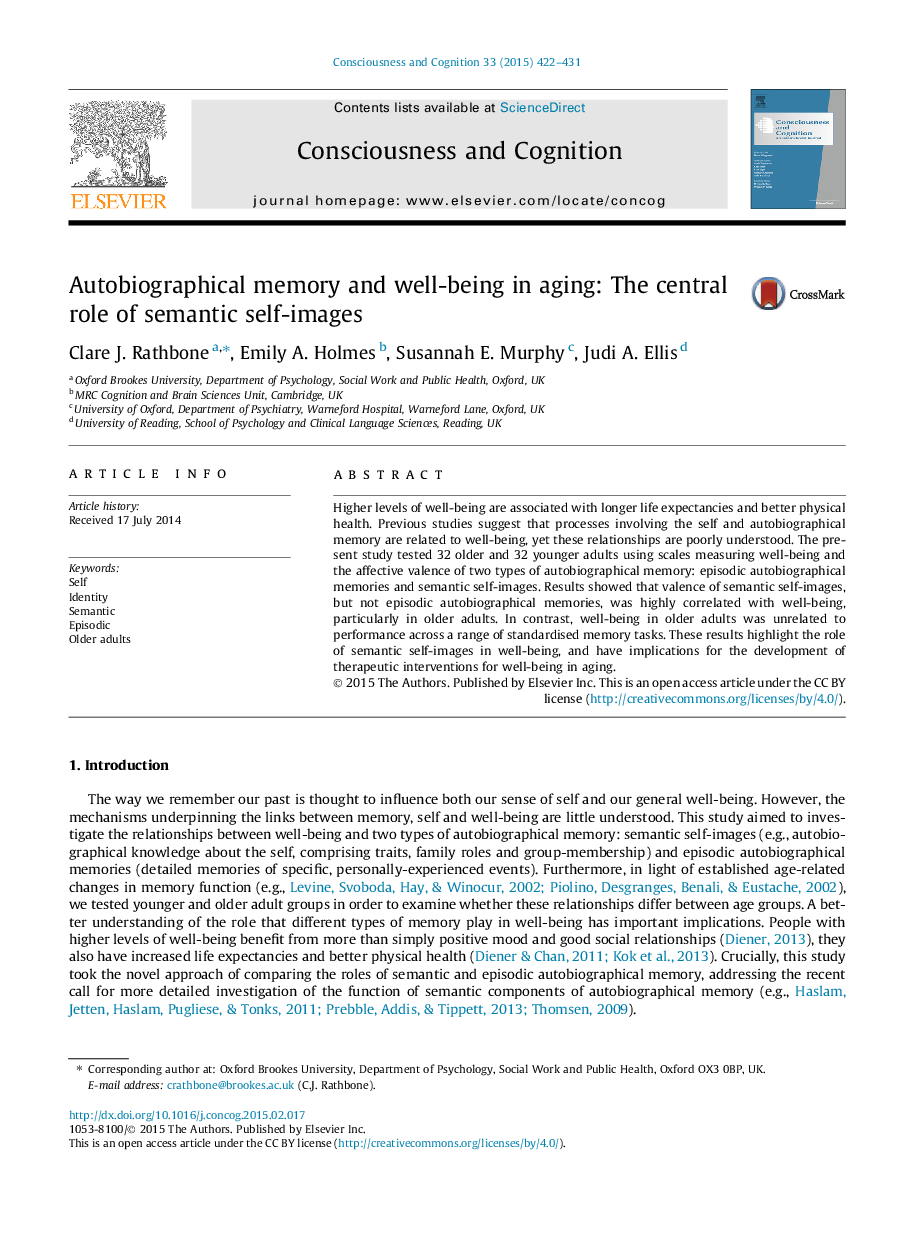| Article ID | Journal | Published Year | Pages | File Type |
|---|---|---|---|---|
| 7289610 | Consciousness and Cognition | 2015 | 10 Pages |
Abstract
Higher levels of well-being are associated with longer life expectancies and better physical health. Previous studies suggest that processes involving the self and autobiographical memory are related to well-being, yet these relationships are poorly understood. The present study tested 32 older and 32 younger adults using scales measuring well-being and the affective valence of two types of autobiographical memory: episodic autobiographical memories and semantic self-images. Results showed that valence of semantic self-images, but not episodic autobiographical memories, was highly correlated with well-being, particularly in older adults. In contrast, well-being in older adults was unrelated to performance across a range of standardised memory tasks. These results highlight the role of semantic self-images in well-being, and have implications for the development of therapeutic interventions for well-being in aging.
Related Topics
Life Sciences
Neuroscience
Cognitive Neuroscience
Authors
Clare J. Rathbone, Emily A. Holmes, Susannah E. Murphy, Judi A. Ellis,
